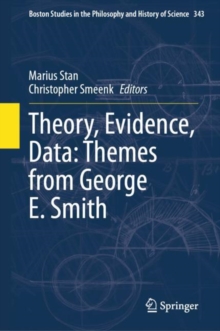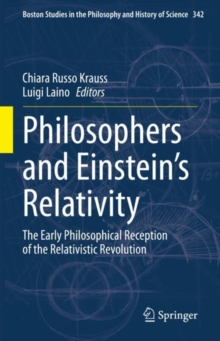
The Material Realization of Science : From Habermas to Experimentation and Referential Realism PDF
by Hans Radder
Part of the Boston Studies in the Philosophy and History of Science series
Description
This book develops a conception of science as a multi-dimensional practice, which includes experimental action and production, conceptual-theoretical interpretation, and formal-mathematical work. On this basis, it addresses the topical issue of scientific realism and expounds a detailed, referentially realist account of the natural sciences. This account is shown to be compatible with the frequent occurrence of conceptual discontinuities in the historical development of the sciences. Referential realism exploits several fruitful ideas of Jurgen Habermas, especially his distinction between objectivity and truth; it builds on a in-depth analysis of scientific experiments, including their material realization; and it is developed through an extensive case study in the history and philosophy of quantum mechanics. The new postscript explains how the book relates to several important issues in recent philosophy of science and science studies.
"I highly recommend this book. Radder is probably the first philosopher of science to make productive epistemological use of the notion of 'experimental system'. The postscript is most valuable since it connects his work not only to the topical debates in philosophy of science, but also to history of science and science studies."
Hans-Jorg Rheinberger, Max Planck Institute for the History of Science, Berlin
About the first edition:
"The debate on realism has recently become rather stale by repetition, but Radder introduces original insights and has written a lively and well-argued contribution to it. The book is to be recommended also as a clear introduction to the complex of relevant issues."
Mary Hesse, University of Cambridge
"Radder presents an ingenious approach to the issue of scientific realism and conceptual discontinuity. I believe his idea that conceptual discontinuity presupposes other types of continuity is extremely important."
Mark Rowlands, Universityof Alabama, Tuscaloosa
Hans Radder is professor of philosophy of science and technology at VU University Amsterdam. He is the author of In and About the World and The World Observed/The World Conceived. He edited The Philosophy of Scientific Experimentation and The Commodification of Academic Research: Science and the Modern University, and is coeditor of Science Transformed? Debating Claims of an Epochal Break.
Information
-
Download - Immediately Available
- Format:PDF
- Publisher:Springer Netherlands
- Publication Date:03/05/2012
- Category:
- ISBN:9789400741072
Information
-
Download - Immediately Available
- Format:PDF
- Publisher:Springer Netherlands
- Publication Date:03/05/2012
- Category:
- ISBN:9789400741072










